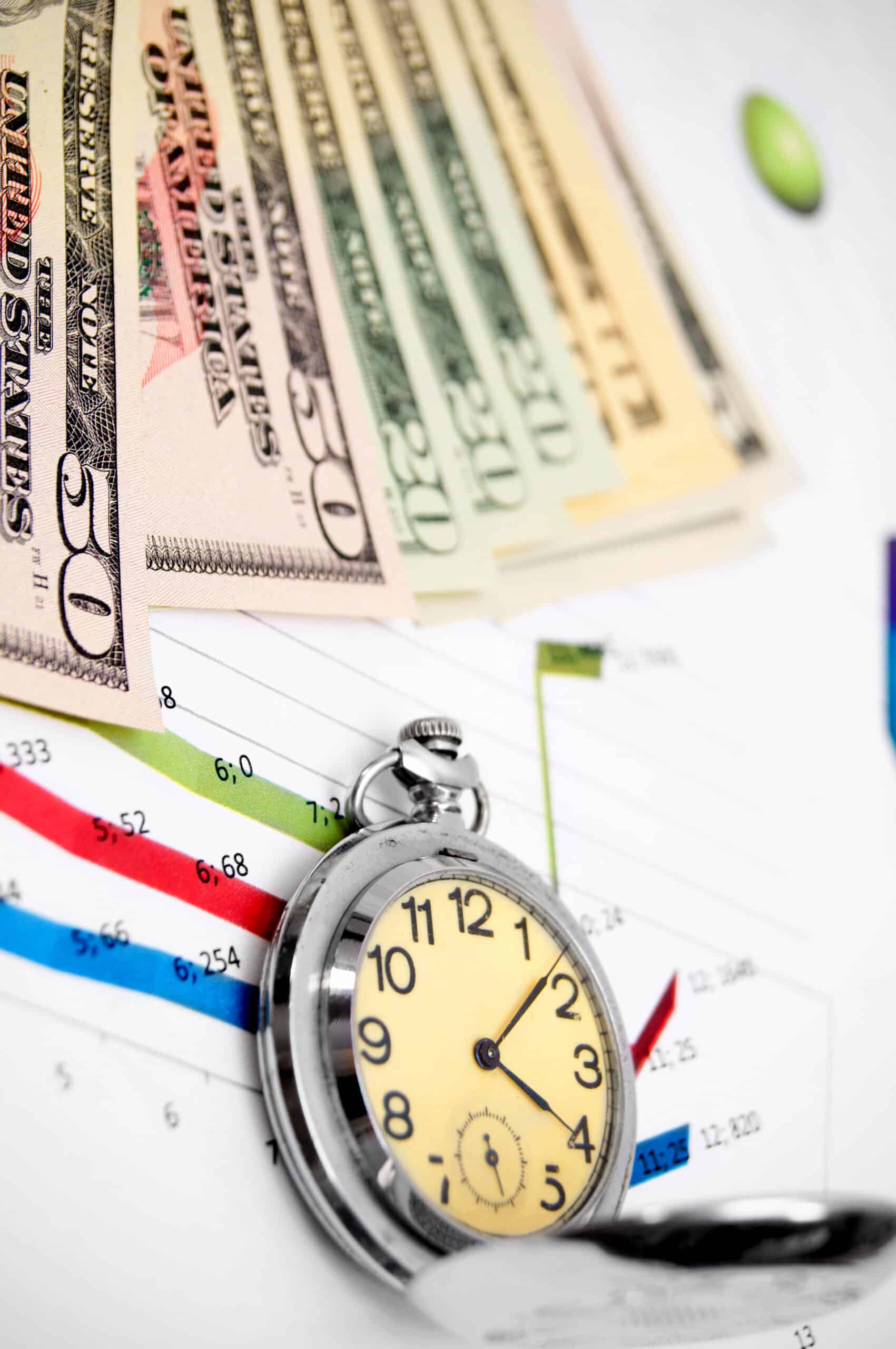Many people find it quite exciting and liberating to achieve the stage of financial independence and freedom in a relatively short amount of time. It’s challenging even if you’re not in a hurry to achieve financial independence. Yet the urgency makes it twice as difficult.
So, how can one achieve early financial independence? Scroll down and have a look!
Know what you want to do
To become financially independent, one must have a specific goal and a timeline in mind in order to make progress toward that goal. It’s likely that you’ll have to make more of a commitment in terms of time and resources if you shorten your goal-attainment timeline. But it will be well worth it when you get there.
Set up a weekly, monthly, and even yearly budget
Nothing beats the feeling of accomplishment you receive from doing all the money-related duties you set for the week, month, or year and still coming in under budget.
Whether it’s groceries, repairs, personal care products, entertainment, utilities, loans, or credit card payments, saving money is always a good thing. In addition to the main objective of being financially independent as soon as reasonably practicable, this will also help you save some additional money.
Create a safety net
Fast action is needed to set up a reliable financial safety net. Having some savings as a safety net is crucial in achieving financial independence. In addition to your regular savings account, you should start an emergency fund into which you may put any spare cash. To avoid needing other people to bail you out of a jam, you should have enough money saved to last for approximately three to six months without having to sell anything or cut back on your lifestyle.
Save automatically
In a short amount of time, you may reduce your costs by using the automated functions. Direct deposit, for instance, may send funds to many accounts simultaneously, letting you build up your savings while still funding your checking account. It’s preferable to set up direct deposit distribution based on a percentage of revenue rather than a flat amount. In this way, your contributions can rise automatically as your salary does. Automated funds transfers are an alternative method. To make sure you are continually adding to your savings, you may set up automatic transfers from your checking account to your savings account at several financial institutions.
Spend less
Spending less on material goods might have a surprisingly large impact on your financial situation. Cutting costs benefits you in two ways. You’ll have more disposable income, for one thing, which means you can start working toward your financial independence sooner. The second benefit is that you’ll be able to save more money by living with far fewer stuff. Again, this will bring you closer to your goal of independence far more quickly.
Increase your income
One other simple approach to speed up your path to financial independence is to earn more money. However, this is typically more challenging to do than lowering costs. Focusing on your work or beginning your own business are two effective methods to increase your income. Pick the most financially reasonable alternative without adding to whatever debt you may already have.
Reach an amount of money of ca. 25x your annual expenses
The correct amount of money to save in order to achieve financial independence is a tough nut to crack, and yet we are discussing it. If you are just getting started on the path to financial independence, it is not important to establish the precise amount to aim for right now. It is advisable, however, to aim for a corpus of 25X, where X is your yearly expenses. Some people could find this to be sufficient, while many others might need more. It’s possible that sizes 30X or 40X would work better for certain individuals. It is reliant on many factors, including one’s current age, the age at which one plans to retire early, the assumed length of one’s working life, the assumed rate of inflation both before and after retirement, the expected rate of return both before and after retirement, and several other, more serious aspects, such as the sequence of returns risk, etc.
Get a financial advisor
When you have reached the point in your life when you have accumulated a respectable amount of money, whether in the form of liquid or fixed assets, you should seek the assistance of a financial counselor so that you may continue moving forward in the proper direction. Because there are areas of the world of finance that you may now be familiar with, getting the assistance of a financial counselor is very necessary if you want to avoid making mistakes.
Conclusion
Everyone strives to achieve financial independence. However, only a small percentage of people succeed in doing so. Why? The road to financial independence isn’t a smooth one, for whatever reason that may be. To do so, anyone needs to take planning seriously and, more significantly, to stick to their strategy. However, in practice, this proves to be more difficult than it seems.
You can achieve financial independence rather quickly if you follow the advice given above. It’s very normal to feel stuck sometimes, so don’t beat yourself up over it. We are, after all, discussing a quest for one of humanity’s highest aspirations.
Every financial decision we make must be mindful and intentional because any wrong move can have a ripple effect and negatively impact our lives in the future. Poor spending and money management are said to be responsible for losing great fortune. It is not uncommon to make mistakes, particularly when we learn from them. If you are making the same mistakes repeatedly, you will face financial difficulties. Even when you are facing monetary issues, avoiding these blunders will set you up for success.
Spending more than you earn. It’s one of the greatest financial blunders people can make, particularly those who continually spend more than they earn. At first, it may not seem like a big deal to spend a few dollars on items that aren’t immediate needs; when you tally up all your miscellaneous charges, you’ll see how much money you’re wasting. Every penny counts when it comes to finance. Whenever you have the urge to spend money on something you don’t really need, think about this.
Not tracking your expenses. People spend more than they earn because they don’t track their expenses. If you track your finances, you’ll be able to determine how much you need to save and how much you can spend. By tracking your expenses consciously, you can avoid living paycheck to paycheck.
Not investing in retirement. Some people begin thinking about retirement a few years before retirement. You should establish a retirement plan as soon as you get your first job. A small regular deposit into a retirement fund will provide for a secure old age.
Rushing to buy a home. Buying a home is wonderful, but you must carefully evaluate your financial situation before committing to such an important decision. You should invest in your home when you have a steady income and savings, as home loans are one of the largest debts you can get into.
Buying a new car. Driving off the car lot is thrilling, but it’s also a liability. As soon as you drive away, the car immediately depreciates in value. Instead of taking out a loan to purchase a vehicle, save up for one within your budget to avoid wasting money on a big car that you don’t need. Cars are pricey, so if you buy one that is too big, you’re wasting money on a vehicle that could be put towards other expenses or paying off debt.
Ignoring your credit score. Credit scores help us get loans because it informs lenders if we are a good risk or not. A good credit score will almost always qualify you for lower interest rates and finance charges on credit card balances and loans. The less you pay on interest, the more you have for everything else, including repaying your balance. In addition, a higher credit score increases your chances of getting a higher loan amount for things like a car, a home, a personal loan, etc.
Not having insurance. There is one thing you want to do when you start earning an income, and it is to get insurance. You can get several insurance policies, but one of the most important ones is medical insurance. Medical insurance is affordable, so there is no reason not to get one.
Lack of investment strategy. If you want to get out of the rat race regarding your finances, you should start looking at investments. You can include investments like bonds and stocks in your savings plan. You don’t have to start investing so much money; ensure you consult a financial adviser for the best advice.
Not looking for ways to increase your income. In today’s world, inflation happens now and then, and one of the ways to prepare for inflation is by increasing your income. You can also ask for a raise at work if you think you’ve earned it.
Conclusion
You may be unable to recover from financial mistakes if you don’t catch them. When you look at your monetary situation from a distance, you’ll see all the blunders you’ve been making. You may alter your course if you are aware of these errors. Create a financial plan and adhere to it. Before buying anything, carefully consider if it is necessary. You may seek advice from finance professionals.
If you would like help with a thrift savings plan, or fundamental investing, Bespoke educators will help you.
Financial freedom. Whatever it means to you depends on your perspective, but in general it implies being able to live the life you choose without worrying about money.
This is a goal that is really important to a large number of individuals. Gaining financial independence also entails building up an emergency fund from which you may retire or pursue whatever professional path you choose without feeling compelled to make a specific amount of money every year.
Although we all have different views on money, the truth is that financial independence is a reality that can be achieved. Continue reading to find out how to achieve financial freedom and the peace of mind that comes with it, since it is comforting to know that you have a source of money to fall back on in the event of any occasional financial problems.
Recognize where you stand
It’s important to know where you stand financially before you can begin the path to financial independence. Debt, savings, and the amount of money you need may all be eye-opening when seen in this light. We do want you to keep in mind, however, that this is a step in the right direction.
A good way to understand your financial condition is to make a list of everything you owe. This should include everything from your housing and student loans to your vehicle lease and credit cards. If you’ve borrowed money from family or friends, don’t forget to add it.
After that, you’ll need to figure out how much you’ve saved in other types of accounts, such as savings accounts, stock portfolios, retirement plans, and other types of financial programs. Payroll and other expenses might also be factored into the monthly budget.
You’ll have a good picture of your earnings and expenditures after making these two lists.
Set life goals
Whatever it is that you define as “financial freedom,” it should be considered a life goal. Setting generic goals and timeframes for accomplishing them is a bad idea since it’s not clear enough. Do you wish to permanently eliminate your debt? Do you long to be free of the shackles of the 9-to-5? What’s the destination you’ve always wanted to visit? Are you saving for a wedding, children, or retirement? Remember that with the appropriate plan, all of this is possible.
Make a deadline and a series of checkpoints for each life goal. Breaking down your long-term objectives into smaller, more manageable chunks is a sensible strategy that will keep you motivated as you cross each one off your list.
Keep track of your spending
There are a variety of tools and applications that may help you keep track of your spending habits, which areas you overspend in, how much money you have in each of your accounts, and how much debt you have.
Many of these money-spending trackers include a goal-setting dashboard to help you keep track of what you’ve accomplished. The ultimate purpose of these monitoring programs is to keep you accountable of how you spend your money and remind you that you do all the tracking for your own good. When you realize how much money you’ve saved over time, you’ll be even more inspired!
Create additional sources of income
You shouldn’t live solely off of your paycheck. There are several ways to increase your income. You will need to give up some of your time to achieve financial independence sooner if you’re serious about it.
Income may be split into two categories active income (exchanging time for money) and passive income (money that continues to flow even when you are snoozing).
Your normal employment belongs to the first category, but once your regular shift is over, you can pick up extra work as a freelancer for a few hours. You may get this chance on several sites, like Upwork.
As from second group, which is called “passive income,” you could start to invest. You should choose investments based on your risk tolerance if you want to achieve financial freedom. Start with low-risk investments if you are new to investing, like gold or mutual funds. The advantages of investment will become apparent in the upcoming years.
The simpler – the better
Learning to live modestly requires developing a mindset centered on getting by with less, and it’s simpler than you would think. In reality, many successful people formed the practice of living within their means before becoming rich.
A simple lifestyle is not difficult to embrace. It simply consists of developing the ability to differentiate between things you need and things you desire, and then making modest changes that result in significant improvements to your financial well-being.
Maintain your property and your health
Taking good care of your belongings extends their lifespan, from your household to your car to your lawnmower to your shoes and clothing. A little bit of routine maintenance may save a lot more money in the long run as compared to a complete replacement.
When it comes to financial well-being, taking good care of your physical health can have a huge influence on your financial well-being, too. It’s not difficult to make an investment in your health. It implies scheduling routine checkups with your physician and dentist and adhering to any health-related recommendations. Exercise and a better diet are simple lifestyle adjustments that can assist or even prevent many medical conditions.
Conclusion
It is possible to take control of your finances and your life through financial independence. What it’s all about is living within your means, being a bit thrifty, and ensuring that money is spent on necessities like food and shelter. You’ll go one step closer to financial freedom if you follow the advice in this article. So, take a look at your money, create other sources of income, and pay off your debt, and you’ll be out of debt before you realize it!
Life may throw unexpected things at us. When this happens, we can’t stop those things from occurring, but we can give ourselves some protection through insurance. Having an insurance policy gives you rest of mind. In addition, insurance policies help you love life with lesser worries knowing that you will receive financial assistance when a disaster happens, which will help you recover faster, especially when you have a family to look after. However, quite often, before shy away from purchasing insurance policies because they feel they don’t need them.
In contrast, some people don’t fully understand the concept of the various kinds of insurance available. However, as we grow older, start businesses, build careers, and get married, we realize that insurance policies are a fundamental part of life. Unfortunately, there is often a misconception that insurance is expensive; this is a false narrative.
Let’s explore some insurance policies everyone should have:
- Life insurance:
Even if you decide to get only one insurance policy, it should be this one. Life insurance not only protects you, but it also protects the people that are dependent on you. Getting a life insurance policy means that you are thinking ahead.
- Homeowners or Renters Insurance:
Is important for people who own their own homes or rent a property. Homeowners insurance covers your home against theft or damage to the foundation, walls, roofs, and other personal property. Renters insurance protects you against theft or damage of personal items in a rented apartment.
- Long-term disability insurance:
Is similar to life insurance as it also provides financial assistance in case something happens to you. It protects you if, for any reason, you are unable to work or earn an income due to a physical disability such as the inability to walk and perform usual duties. This insurance can cover permanent, temporary, partial, or total disability.
- Health insurance:
The rising cost of medical care should be the reason for everyone to get health insurance because a regular doctor’s visit could lead to heavy bill payments. In addition, serious injuries or medical conditions requiring intensive care could wipe out your entire life savings. Although the cost of health insurance could be a financial burden for some people, the disadvantage of not having one far exceeds the inconvenience.
- Long-term care insurance:
Covers services you will need during retirements, such as nursing home and in-house care. Long-term care can help you live comfortably. Out-of-pocket costs for long-term care can run into hundreds of thousands of dollars. So even though getting long-term care insurance will cost thousands of dollars yearly, buying a plan is still the better decision as you will end up saving a significant amount of money.
- Car insurance
If you own a car or you intend to own one soon, you should include automobile insurance as a necessity. Accidents happen suddenly, and sometimes, the results can be fatal. If you get into an accident and the other party’s vehicle is damaged, or someone is injured, you may be subjected to a lawsuit that may cost you everything you ever worked for.
How to find the right insurance policy that suits your needs
Even though many people consider insurance, the insurance products are so many. So it can be difficult for one to make a good choice. Sometimes, you may find a suitable one, but the cost for premium may be too high, and other times, it may be affordable, but the benefits are not satisfactory.
The first step when considering insurance is determining what kind of insurance will cater to your needs. You should also identify unforeseen events that can hinder your family from living comfortably. Next will be ‘what type of products is suitable for me?’ For example, life insurance products can help an individual meet the dual needs of saving for the future and protection during unforeseen circumstances. In addition, many policies will provide you with options that can be customized per your current requirement, making it easier to decide.
Conclusion
Insurance may seem costly, but it can be worth it in the long run. Always remember that insurance companies are there to make life easier for you and cushion some burdens. When unsure about the insurance products, it is advisable to seek a professional’s help. Even though insurance can be complicated, with the right information and a little thought, you can arrive at the perfect combination of coverage that suits your every need. Furthermore, if you already have insurance, you can improve on the current one. It’s a win-win.
Are you having trouble keeping up with your bills? Are your debts increasing by the day? You are not alone, many people are in your shoes, and even countries owe debts. Being in debt can be frustrating, but it is not the end of the world. People run into debts for several reasons – education, medical expenses, housing expenses, and the list goes on. Many people have debts; some have successfully found a way to manage their debts, while some are on their way to finding solutions. Every path to becoming debt free has its twists and turns. And, no single approach is right for every person; you have to find your own. Some methods can be straightforward and handled independently, while others require a professional’s help. Additionally, it is important to recognize the short-term and long-term impact of each option. Some of these options may negatively impact your credit score and limit your access to new credit.
What is debt relief?
Debt relief refers to any strategy, service, or plan an indebted person uses to obtain some financial relief. A person’s debts can be totally or partially forgiven depending on the debt relief program or strategy used.
Debt relief manifests in various systems and plans, so there is no singular debt relief strategy that works perfectly for everyone. However, the unifying feature results in a person not having to pay their entire debt or at least allowing them to pay it over a more extended period.
When to consider debt relief
If you earn a consistent income, the first thing to do is to figure out ways you can save and plan with your income without running into debts. Next, find ways to cut down spending and look for alternative ways to increase your income if possible. Finally, once you have exhausted all of your savings and earning resources and still can’t meet your monthly payments, it’s time to consider a more drastic debt relief option.
Common debt relief options
If you are ready to solve your debt problems, you can choose a range of options. Let’s explore some of these options:
Debt consolidation
This process involves combining all your debts into one monthly payment. High-interest credit cards are paid off in the debt consolidation, and lower interest rates are offered. These debt consolidation loans are given after you have completed a debt settlement. Generally, debt consolidation means taking multiple account balances, paying them off with a single financial tool, then making payments on one account each month.
Debt settlement
Refers to negotiating with creditors to settle a debt for a lower amount than the amount owed. This process typically involves working with a settlement agency or debt relief company to negotiate on your behalf. Following the agreement of a settlement amount, you start making monthly payments into a special account for this purpose. That money will be used to pay your creditors. With this, the rest of your debt will be forgiven.
Bankruptcy
This option is most likely for people who have tried debt settlement and consolidation but were unable to repay their debts. This court procedure eliminated debts through liquidation, asset seizure, or organization of debts. It often provides a chance to start over on a clean slate and can give you relief from your creditors. As fantastic as this method sounds, bankruptcy is risky compared to the other options as it can also have a negative impact. It can affect your ability to pass a credit check for a job or housing, as a result, negatively impacts your ability to borrow money in the future. It also does not protect your property from being repossessed or taken away.
Conclusion
Debt relief strategies are worth trying if you have trouble managing your regular payments and are not sure if you will be able to keep up your credit score. So the question is, among these options, which should you choose? This question can be difficult to answer because there is no right or wrong answer. Your choice will depend on your situation. Therefore, it is best to carefully explore your options according to your situation. Do not make decisions based on which collectors are pressuring you the most or based on someone else’s experience. That an option worked for someone does not mean it will work for you.
If you don’t have any debts, you want to keep them. Get yourself equipped with financial strategies to stabilize your income and help you manage your finances. It will also help if you seek a professional’s services if you have financial challenges.
Financial planning is an integral part of our professional lives. Therefore, tax planning is an essential aspect of financial management. Individual taxes come in various forms; therefore, every individual must clearly understand the subject to improve personal tax planning and management skills. In addition, tax planning is a legal approach to lowering the tax burden through tax benefits, deductions, and exemptions.
Importance of Tax Planning
There are numerous reasons why tax planning is essential. Firstly, tax offers advantages such as reduced litigation, assured economic growth, lesser tax burden, and increased productivity. It also strengthens the taxpayers financially and helps them easily pass on their assets to their beneficiaries.
The Objective Of Tax Planning
As explained earlier, the importance of tax planning cannot be overemphasized. Therefore, let us look at some objectives of tax planning.
Reduction in tax liability; before setting up a tax objective, it is crucial to compare transactions with the estimated and analyzed tax applicable to find a break route. For example, a taxpayer’s prior needs come from saving for the family even though the state wants the maximum tax to be deposited. So for every taxpayer, the objective is to source ways to reduce state taxes.
Economic Stability:
This is more about ensuring the economy is making economic progress. All legally due taxes, if paid pre-planned without any hassle, create more productive investment in the economy with which the taxpayer also thrives.
Profitable investment; the more the taxpayers save on their tax liabilities, the more they can devote it to a profitable channel. This is to say that an entity with quality tax analysis can direct its earnings into productive investments or dividends. Therefore, smart investments can be made while maximizing the available resources.
Minimal Litigation:
A taxpayer on a high note expects his tax consultant to decrease the possibility of legal litigations. The taxpayer is also responsible for informing his tax advisor about all the investment plans being made for the future and should take legal advice before planning. When all these precautions are taken, the taxpayer saves himself from legal harassment and litigation difficulties.
Minimal Gross Tax Burden:
Tax analysis helps taxpayers take advantage of available tax benefits, exemptions, and deductions. In addition, it assists in arranging the taxpayers’ commercial operations as per their tax decisions. Consequently, the maximum capital amount is not included in tax liabilities.
What is Tax season?
Tax season is the time between the end of one tax year and the beginning of another in which individuals prepare and file their tax returns for the previous year. Then, the tax authority begins accepting and processing the tax returns received during the filing period.
Tax planning strategies
Tax planning will always be a smart decision. So let us explore some tax planning strategies to help you maximize your tax season.
- Make less expensive yearly commitments; insurance schemes may sound quite lucrative, but not all are worth the investment. Hence, taxpayers should endeavor to put their finances into products or services that are less expensive and profitable. It is important to check the disposable funds to examine the affordability to sustain the investment.
- Analyze your post-tax returns; taxpayers must avoid getting distracted by profitable yet suspicious policies when analyzing tax returns. Instead, they must check out products with tax-free profits like Public Provident Fund (PPF) and Mutual funds
In conclusion
Tax planning tips can be handy if you wish to manage your finances better. In an economy as global as today’s, everyone needs to learn how to maximize the money they work hard for every day.
Educating yourself about the different taxes can help you determine and understand which ones you’re supposed to pay and why. Of course, every citizen should pay their dues to the government; but it’s different when you’re paying for something you’re no longer required to or cannot afford.
Investing may be found all around us. It’s a clever and beneficial approach to make money. A simple definition of investing is the process of putting money aside and letting it develop in value over time while you go about your daily activities. Owning a home, a company, or real estate is an example of investing, as is having money in a savings account.
Investing, like everything else, is built on a foundation of principles. Understanding that there is no one more essential than the other is vital. Only if you put everything together can you succeed as an investor.
Let’s get started with the fundamentals of investing now, shall we?
Planned goals and discipline are key
In order to be a great investor, you need to have both foresight and self-control. Preparation entails considering all of the variables that go into building an investment strategy, such as identifying your goals and your investing time period, learning about asset allocation, and ensuring that your assets are properly cared for throughout time.
With planning and discipline, keeping market changes in perspective, acknowledging the possible impact of risk, and frequently rebalancing your portfolio are all important. Before putting together your investment strategy, make sure you’re living within your means and deciding how much money you’ll set aside for it.
You might also consult with a specialist to get their input on your strategy. To avoid being distracted by short-term market fluctuations and emotions, working with an investment advisor can help you focus on your long-term financial goals. In the long run, this might assist increase the value of your holdings.
Define your goals and investment time frame
Decide what you want to get out of your investments, and then set a timeline for when you want to make those investments. When choosing on the investments to make, you may use the time period you’ve set for your investments to guide your decision making.
At different points in one’s life, people pursue different ambitions. It doesn’t matter if your goals are short, medium, or long term. The most important thing is to be honest with yourself about how much money you have to invest and how you want to go about doing it.
Know what type of assets you need – growth or income assets, or even both
Investing may be broken down into two categories: growth and income. It’s important to know what you want to get out of investing before you start. It would be easier to organize your investments if you know if you need more growth assets or income assets!
Growth assets are meant to offer most of their returns over time in the form of capital growth, whereas income assets prove their return in the form of income and include cash investments as well as bonds and a few stocks.
Understand the risks
Risks are an inherent part of investing. An investment’s actual return may differ from expectations, which is a form of risk. Investing entails a variety of risks, including:
- Country risk – when a country’s financial markets may be weakened by domestic events, such as political turmoil and financial difficulties, or natural calamities.
- Currency Risk – an investment’s value decreasing as a result of fluctuating currency exchange rates.
- Inflation risk – inflation is a measure of the rate at which the prices of goods and services are rising in the broader economy. There’s a danger that inflation will destroy your investments’ value or buying power.
- Liquidity risk- this is the possibility that an investment may be difficult to purchase or sell.
- Market risk – in investing, market risk refers to the possibility that your investment returns will fluctuate as a result of changes in the underlying market conditions.
- Shortfall risk – your long-term financial goals may not be met if you don’t have enough money in your portfolio to cover them.
Risks and rewards, of course, are linked – The greater the potential for profit, the greater the danger. Your risk tolerance and willingness to take a chance will decide the asset class that is most suited to your investment. Risk assessment is essential while making an investment.
Diversification is the key to risk minimization
Diversifying your investments is one of the best methods to decrease risk and guard against abrupt market drops. Better-performing assets in a diverse portfolio can offset underperformers. Diversification alone cannot guarantee a profit or safeguard against market losses. It can lessen the danger of losing a lot of money in one investment. You can diversify your risk with your financial adviser’s aid. So, while certain assets underperform, others might help balance out your portfolio.
Understand asset allocation
Successful investing strategies include asset allocation. It entails selecting how much to hold in shares, bonds, property, and cash, among other asset types. It also entails choosing asset classes that suit your investing goals, time range, and risk tolerance.
Each asset class has varying risk and return potential in different market situations. A balanced portfolio employs each asset class’s features to smooth performance and balance risk.
Keep an eye on market movements
Whatever you invest in, its value will fluctuate. As economic, social, and political events impact markets, your investments will increase and fall. Markets fluctuate, sometimes significantly, by nature. After the dust settles, it’s hard to explain market fluctuations.
In other words, don’t lose sight of your investing goal and consult your financial adviser before changing your approach based on headlines and market emotions. It’s time in the market, not market timing, that matters.
Always review and rebalance
At least once a year, review your portfolio’s asset allocation. Personal or market changes may prompt you to examine your portfolio. You risk not attaining your investing goals if you don’t analyze and alter your portfolio.
During your assessment, you may elect to rebalance your portfolio, or adjust its asset allocation. This requires selling and purchasing assets. When rebalancing, consider costs and taxes. Buying stocks or bonds usually involves brokerage fees and taxes.
If you need to make changes, you could consider rebalancing in three ways:
- Reinvest Dividends – if an asset sector has surpassed its objective, you can shift dividends and/or capital gains from that sector into another sector that has not.
- Top up – increase the amount invested in the asset class that has fallen short of the desired percentage.
- Transfer – move money from the overallocated asset sector to others.
Conclusion
Investing may be difficult and daunting at times. This information might help you understand the dangers and possibilities connected with investing. In addition, it may help you make better educated and confident judgments regarding your financial portfolios.
Why don’t you get started with investing right away?
When people hear or think about investing, it may sound like one of the scariest things to do. However, on the contrary, it can be one of the most rewarding. A significant decline in the market can be frightening, but investing is one of the few ways you can outpace inflation and grow your purchasing power over time. But unfortunately, a savings account won’t build wealth. So, this makes investments one of the best decisions for anyone, regardless of age, to make. It can be pretty tempting to put off investing and come up with plenty of excuses such as I don’t know where to start, I am too busy, I do not earn enough. However, you can actually start investing with just a few hundred dollars.
But before you can do that, there are steps you need to consider:
- Identifying your goal
Investment is a long-term goal, so it is crucial to ask yourself what exactly you want to achieve. Are you investing to buy a house, for retirement, or your children’s education? Answering these questions will help you decide how much you want to invest over time.
- Evaluate your risk tolerance every investment involves risks.
You must understand before investing in securities – such as stocks, bonds, or mutual funds that you may lose some or all of your money. When you take on risk, your investment could have a greater return. For example, suppose you have a long-term financial goal. In that case, you are likely to make more money by carefully investing in asset categories with greater risk, like stocks or bonds, rather than restricting your investments to assets with less risk, like cash equivalents.
- Determine your budget
For investments to be worthwhile, it’s best you set aside a budget. For example, if you are a regular income earner with a fixed income every month, you can set aside a percentage of your income for investment.
- Choose what to invest your money in
There are several investment options to choose from. Selecting the best investment can be difficult at times. The best kind of investment is dependent on your goals and your risk tolerance. For example, you could opt for stocks if you have a higher risk tolerance and time to research each investment.
Select an investment account. After everything mentioned above. it is time to put your plan into action and start investing. Of course, there is no right time to start investing, and there will never be. But it is advised to start early and invest regularly; this is the only way to build a robust investment portfolio. There are many investment accounts; the most common ones are standard brokerage, retirement, education, and health savings accounts.
Picking an investment strategy
This step is important because if there is no strategy, your plan is as good as a failure. Your investment strategy should depend on your savings goals and how much money you need to reach those goals. For instance, if your goal is more than twenty years away (your retirement), you could consider putting your money in stocks. However, picking the right stock can be confusing as there are too many options. Therefore, you must be willing to educate yourself thoroughly to understand what you are getting into.
Why You Should Invest
The reason for investment can vary for many people. However, here are some reasons why many people decide to invest.
- To increase your net worth
There are several ways to increase your net worth but making intelligent investments, not just in stocks, is a surefire way to increase your net worth.
- Financial security
The future is never guaranteed as you never know when emergencies will arise. However, if you invest the right way, your investment will exceed your expectations. It enables you to meet your financial goals; we all have our specific individual financial goals, and we can only meet these goals if we put our money in places that will yield significant results. Saving your money in the bank may not give you as much money as you need to meet your financial goals.
In conclusion
If you are confused about how or where to start investing, you can look to seek the help of investment professionals. Regardless of how you choose to invest, remember that it is a long-term endeavor and you will reap the greatest rewards if you invest consistently over time. To do this, you should stick with your investment plan regardless of market conditions.
Financial literacy is a very crucial part of human existence. Staying on top of your financial accounts, from checking to savings to credit cards, can be a lot to handle, especially when juggling your other daily responsibilities. Yet monitoring your finances regularly can help you stay current on account balances and help you reach your financial goals.
Financial confidence can be said to be the ability to recognize and act upon our strengths for improvement when managing our own money. Like many aspects of our lives, people possess different confidence levels regarding personal finances and money management. However, to live a good life, you should pay attention to your finances. Whether you have a large or moderate-income, you will save yourself from many worries if you know how to manage your finances well.
Here are some ways you can monitor your finances seamlessly
Set up a budget
Budgeting helps ensure that your expenditure aligns with your financial goals. When you make a budget, you see an overview of your income and expenditure. You will see exactly where your money is going; this will help you prioritize and ensure you are spending money on essential things.
Set financial goals; even though budgeting is the first step in monitoring your finances, it is also important to know why you are budgeting. It could be that you are saving for your dream home, your dream car, or you want to breathe a little easier at the end of next month. Having financial goals make it easier to maintain a budget.
Manage your debts
Debts can hinder us from attaining our financial goals. Therefore, knowing how to manage your debts is a huge step in learning how to manage your finances. You could create a monthly bill payment calendar to help determine which bills to pay and which paycheck. Pay your credit card promptly and ensure you do not exceed the limit.
Create an emergency fund
Unexpected expenditures may arise at any time leading to financial stress. Financial stress is real and can happen to the best of us even when it seems like we had everything planned out. To reduce stress, it is advised to build an emergency fund to cover these unforeseen expenses. An emergency fund could and most likely will alleviate your stress in several ways. Most importantly, it will give you the psychological security you need to be calm in stressful situations. In addition, you will have the money to meet them if unexpected costs arise — such as a vehicle repair or a last-minute trip to visit family. In this way, you will avoid getting into more debt and will be able to avoid solutions such as borrowing money or racking up charges on your credit cards that you cannot afford to pay off.
Seek experts’ help
Not everyone can deal with their finances as they should. Financial planning is a whole lot of work, and sometimes, we need the help of experts to keep us on track. These experts can help you manage and finetune your financial goals, whether you are saving for a home or other expenditures.
Start investing
Investments are fantastic if you want to gain financial freedom. A good investment portfolio can help you achieve your long-term financial dreams. For example, build a nest egg for your retirement, repay your mortgage early, or pay university fees for your children. Even if your capacity to invest is limited, small contributions to investment accounts can help you use your earned money to generate more income.
Save
Make it a habit to save and include savings in your budget. Allot a percentage of your income every month as your savings. Having a good amount of savings regularly always helps you face your future with confidence and will save you many financial worries.
Conclusion
Financial independence is the best thing that can happen to any individual. With the process described above, if you adhere to them strictly, you are on your way to a healthy financial status. Make sure you track this progress as you begin to pay down your debt and your financial stress decreases. Being aware of how much money you have, rather than sitting in uncertainty, will help you build a more healthy relationship with money and reduce stress. You might consider rewarding yourself by giving yourself an incentive for your hard work. You might, for example, spend $20 on a nice meal or your favorite bottle of wine for every $500 you save.
There are so many reasons people take loans. In addition, there are several types of loans: personal loans, student loans, mortgage loans, auto loans, e.t.c. Before borrowing any money, however, it’s crucial to know the type of loan that’s best suited for your needs.
What is a loan, and how does it work?
In finance, a loan is an amount of money you borrow for specific reasons and agree to return within a time frame, most times with interest. The amount you can borrow and the interest rate will depend on several things, like your credit score, financial assets, income, and how long you will pay it back.
Depending on the type of loan, borrowers may be required to provide a downpayment, i.e., an amount equal to a certain percentage of the borrowed amount.
Why is interest on loans important?
Lenders demand that borrowers pay interest for several vital reasons. First, when people lend money, these lenders may no longer be able to use it to fund their purchases or projects when they need to. In other words, these interests make up for this inconvenience. In addition, interest has a vital role it plays in the economy. It is used as an instrument in economic policy. For example, the interest rate may be set to achieve monetary policy objectives like price stability and stable inflation.
What to consider before applying for a loan
Before taking a loan, especially for individuals, there are some things you need to consider;
- Purpose for the loan; it is important first to ask, “Why am I taking a loan”?, and “Are there alternatives to getting a loan?”
- Income; whatever loan you decide to apply for, you must first check if your income can accommodate that loan.
- Credit score and credit history; a person that has a good credit score and history can show the lender that he can make repayments on time. Therefore, the higher the credit score, the higher the individual’s chances of getting approved for a loan. In addition, with an excellent credit score, an individual also has a better chance of getting more favorable terms.
Types of loans
Loans are sums of money that people or businesses borrow from a lender. There are three main types of loans: unsecured, secured, conventional, and open-end and closed-end. Regardless of the type of loan that one chooses to apply for, there are a few factors that he should first assess, such as his income, expenses, and credit rating.
- Secured and unsecured; a secured loan is often backed by collateral. For instance, some financial institutions require borrowers to submit documentation to show ownership of an asset until they repay the loan. These assets can be stocks, bonds, or personal property. On the other hand, an unsecured loan is an opposite. In this case, the borrower does not need to show any assets.
- Open-end and close-end; open-end is a pre-approved loan granted by financial institutions to a borrower which can be used repeatedly. With open-end loans, like credit cards, once the borrower has started to pay back the balance, they can choose to take out the funds again—meaning it is a revolving loan. In contrast, closed-end loans are loans given with a specified date that the loan and interest must be repaid. In this case, individuals cannot borrow again until they have repaid.
- Conventional loans; these types of loans are mortgage loans that are not insured by any government agency.
What to know about loan agreements
A loan agreement is very important as it contains all the details of the loan, like the amount, interest rate, and time frame for repayment. Here are some things you need to know about loan agreements;
- The basic information required; this part will contain the basic information used to identify the parties that agree to the term.
- The specific loan details; in this section, the details are the amount that is being borrowed, the interest rate, how the loan will be paid, and the time frame for repayment.
How you can choose the best loan possible
Which is the best kind of loan for you? The answer depends on your situation and needs. Are you comfortable with the interest rate and repayment terms? When you Weigh up these factors, it will be easier for you to determine which is right for you. And if you think that there is a possibility you may be unable to pay back, it is in your best interest not to borrow.









